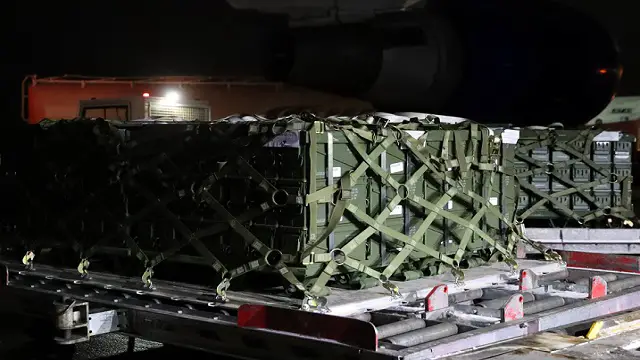Tanvi Madan, Director of the India Project at the Brookings Institution in Washington DC, published a piece at The Indian Express titled “Why India needs to pay attention Russian military build-up in Ukraine” on 21 January. The outlet noted that it first appeared in the print edition that same day under the title “At stake in Ukraine”. Madan makes several points that deserve to be respectfully challenged in the interests of presenting an alternative interpretation of the importance of Russian-US tensions for Indian interests.
The expert predicts that Russia would be compelled to move closer towards China in the event that tensions with the US further escalate. This is likely true, but the consequences won’t be as dramatic for Indian interests as she foresees. Madan fears that Beijing might pressure Moscow to curtail its military cooperation with New Delhi, yet Russia continued reliably supplying India even during summer 2020’s Galway River Valley clashes. Furthermore, Russia is as fiercely sovereign as India is and won’t ever let any third party dictate its policies, let alone military ones, not to mention with other countries.
Madan also presents an interpretation of Russian-US tensions that implies blame on Moscow’s part. In reality, the Eurasian Great Power is at risk of having its nuclear second-strike capabilities neutralized if America deploys strike weapons – including hypersonic missiles – closer to its border. Russian intelligence suspects that it might seek to do under cover of “anti-missile systems” in response to Kyiv provoking another round of Civil War hostilities in Eastern Ukraine. It’s important to keep in mind Russia’s position since it isn’t guilty of unprovoked regional aggression like Madan suggests.

The Brookings Institute expert is very concerned that the worsening of Russian-US tensions will lead to the US and Europe putting pressure on India to support their position towards the crisis. While that might end up coming to pass, this doesn’t mean that New Delhi has to comply. In fact, those countries pressuring India in the first place would confirm that they don’t respect it as an equal partner but still consider it to be a potential vassal state whose policies towards third countries they can dictate at will. This stands in stark contrast to how Russia’s always respected India and its interests with others.
Madan expressed worry that the US might refocus from the Indo-Pacific and back towards Europe in the event that tensions with Russia significantly worsen. Those concerns don’t seem too valid, though, since the former Trump Administration already enshrined the US’ National Security Strategy and other related policies in a manner that confirms their increasing focus on China. The question, therefore, isn’t one of whether the US will continue this course, but whether it’ll intensify and double down on it like the Pentagon plans if tensions are successfully de-escalated with Russia. No “Pivot to Europe” is expected.
Another point brought up by Madan is that China might try to present itself as an interlocutor between Russia and the West. That’s extremely unrealistic, though, since the US-led West already doesn’t trust China as it is, especially not enough to mediate between them and Russia neutrally. Additionally, Russia would probably politely rebuff any mediation proposals since it prefers to deal directly with the US. With all due respect to China, there isn’t anything that it can do to influence Russian or Western policy in the context of the ongoing undeclared US-provoked missile crisis in Europe.
The final point to be respectfully challenged is that the justification for Russia’s actions in the latest crisis doesn’t mirror those of China vis-à-vis India. Madan writes that Russia is motivated by “Historical claims, ethnic linkages, and…steps that it says threaten [it]”. Only the third factor is accurate, as was earlier explained. Apart from Crimea, which is a unique situation that’s not part of the latest tensions, Russia has no historical claims against Ukraine. Ethnic linkages play no role in this crisis. According to Russian intelligence, it’s purely about the US’ suspected missile plans in the region.
Keeping in mind these counterpoints, it can be confidently argued that the latest Russian-US tensions in Europe won’t have as much of an effect on India as Madan predicts. That country will likely come under some degree of Western pressure to support their political position on that crisis but will probably rebuff them in a very polite way. It’s unrealistic to expect India to throw its special and privileged Russian strategic partner under the bus, especially after the extremely positive outcome of President Putin’s trip there last month. Russian-Indian ties, therefore likely won’t be affected by this crisis.
Also read: The Impact of the Russian-Indian Axis on Eurasian Stability
